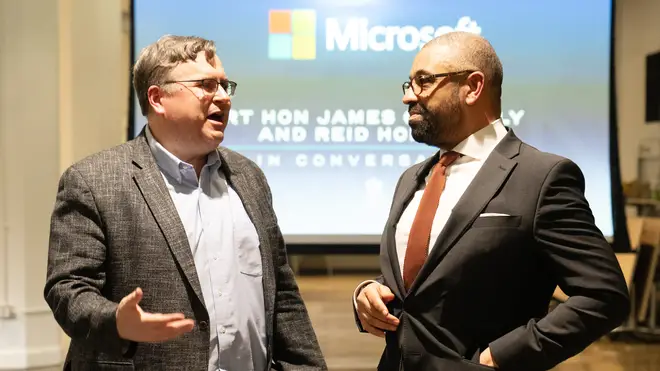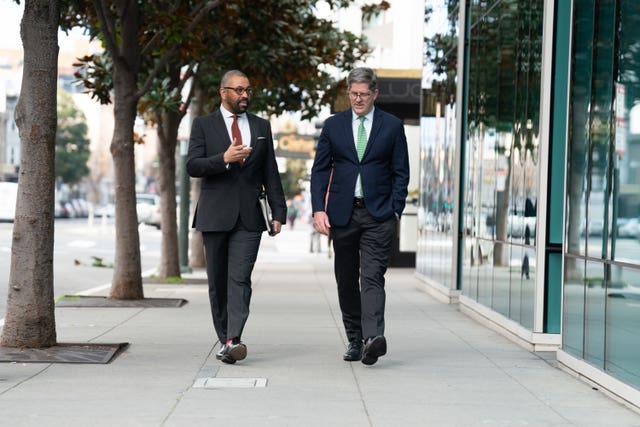
Clive Bull 1am - 4am
27 February 2024, 07:24

The Conservative minister told an audience of people involved in the tech industry he hoped AI could ‘amplify’ the work of humans.
The use of artificial intelligence (AI) for medical diagnoses, border checks and within police forces has been discussed by the Home Secretary as he visited California to meet with tech firms.
James Cleverly spoke to Reid Hoffman, the internet entrepreneur who founded business-based social media platform LinkedIn, at an event at the Microsoft offices in San Francisco on Monday evening.
The Conservative minister told an audience of people involved in the tech industry he hoped AI could “amplify” the work of humans.
He said: “I still envisage there being lots of roles for humans – police officers, border officials, civil servants – but what I want them doing is the kind of stuff that really only humans can do.”

During the discussion, Mr Hoffman said: “Say, for example, governments were to say yes we realise that there can be a medical assistant on every smartphone and less than a billion people have access to doctors.
“How do we have it? How do we enable that?”
Mr Cleverly also raised the prospect of professional indemnity for firms developing technology such as driverless cars, to cover them in the event they were sued.
Speaking after the event, he said: “We want AI to be used. We want it to work.
“We have to put safety measures in place but the opportunities are amazing – through medical research, diagnostic tools, all kinds of productivity gains can be unlocked.
“We want to make sure AI works, works well and we protect ourselves from the potential hazard and harms that come with it.”
Mr Cleverly had warned of the dangers of deepfakes generated by AI, saying it could provide the “perfect storm” for those looking to hijack the upcoming general election.
He said in meetings with leading tech firms on Monday he had discussed issues including online safety, child protection, fraud, AI and potential risks.
He said: “All these things require solutions, they will be solutions the tech firms produce, hopefully in collaboration and coordination with UK Government. It’s been a really productive set of meetings.”
Speaking to Mr Hoffman, he said there was “no simple answer” and work needed to be done to build “relationships of trust” within the industry.
But, he added: “I don’t think we can hang around.”